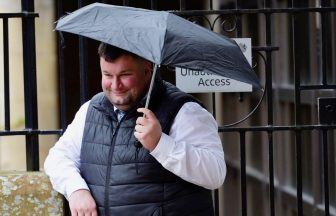Lenders have avoided potentially having to pay compensation to millions of drivers after the Supreme Court ruled they are not liable for hidden commission payments in car finance schemes.
Two lenders, FirstRand Bank and Close Brothers, went to the UK’s highest court to challenge a Court of Appeal ruling which found “secret” commission payments paid by buyers to car dealers as part of finance arrangements made before 2021 without the motorist’s fully informed consent were unlawful.
The ruling in October last year found that three motorists, who all bought their cars before 2021, should receive compensation after they were not told either clearly enough or at all that the car dealers, acting as credit brokers, would receive a commission from the lenders for introducing business to them.
Lawyers for the lenders told the Supreme Court at a three-day hearing in April the decision was an “egregious error”, while the Financial Conduct Authority intervened in the case and claimed the ruling “goes too far”.
The three drivers, Marcus Johnson, Andrew Wrench and Amy Hopcraft, opposed the challenge.
Giving a summary of the Supreme Court’s ruling on Friday, Lord Reed, one of five justices who heard the case, said: “For the reasons set out in detail in a judgment published today, the Supreme Court allows the appeals brought by the finance companies.”
He continued: “However, we uphold Mr Johnson’s claim that the relationship between him and the finance company was unfair, and we allow the appeal in his case only because the Court of Appeal made a number of mistakes in reaching its decision.
“Retaking the decision on a proper basis, we award him the amount of a commission plus interest.
“The other customers’ claims are rejected.”
Following the ruling, a Treasury spokesperson said: “We respect this judgment from the Supreme Court and we will now work with regulators and industry to understand the impact for both firms and consumers.
“We recognise the issues this court case has highlighted. That is why we are already taking forward significant changes to the Financial Ombudsman Service and the Consumer Credit Act.
“These reforms will deliver a more consistent and predictable regulatory environment for businesses and consumers, while ensuring that products are sold to customers fairly and clearly.”
In a letter to the Supreme Court in December last year, the FCA said almost 99% of the roughly 32 million car finance agreements entered into since 2007 involved a commission payment to a broker.
Mr Johnson, Mr Wrench and Ms Hopcraft all used car dealers as brokers for car finance arrangements for second-hand cars, all worth less than £10,000, before January 2021.
Only one finance option was presented to the motorists in each case, with the car dealers making a profit from the sale of the car and receiving commission from the lender.
The commission paid to dealers was affected by the interest rate on the loan.
The schemes were banned by the FCA in 2021, with the three drivers taking legal action individually between 2022 and 2023.
Ms Hopcraft, then a student nurse, bought her replacement car in 2014 through an agreement with Close, which paid the car dealership £183.26 in commission.
Mr Wrench, described by the Court of Appeal as a “postman with a penchant for fast cars”, entered into two hire-purchase agreements for an Audi TT coupe and a BMW 3 Series, with FirstRand, in 2015 and 2017, respectively, paying hundreds in commission in total.
Mr Johnson, then a factory supervisor, was buying his first car in 2017 and paid £1,650.95 in commission as part of his finance agreement with FirstRand for the Suzuki he purchased.
After the claims reached the Court of Appeal, three senior judges ruled the lenders were liable to repay the motorists the commission due to the lack of disclosure about the payments.
Lady Justice Andrews, Lord Justice Birss and Lord Justice Edis said last year that while each case was different, “burying such a statement in the small print which the lender knows the borrower is highly unlikely to read will not suffice”.
Follow STV News on WhatsApp
Scan the QR code on your mobile device for all the latest news from around the country






























